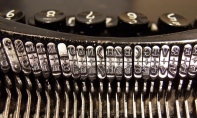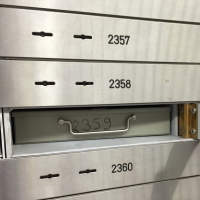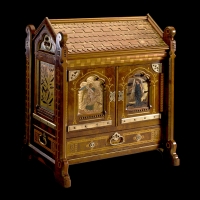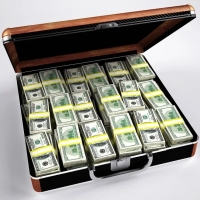- About Us
- Columns
- Letters
- Cartoons
- The Udder Limits
- Archives
- Ezy Reading Archive
- 2024 Cud Archives
- 2023 Cud Archives
- 2022 Cud Archives
- 2021 Cud Archives
- 2020 Cud Archives
- 2015-2019
- 2010-2014
- 2004-2009
 |
Cud Flashes In The Pan |
The First Line – Part 4 of 4
By David M. Fitzpatrick
There’s a great quarterly magazine called The First Line that has been around since the summer of 1999. What TFL does is give prospective contributors the first line of the story; their job is to write stories using that first line. I was lucky enough to be in the magazine once.
For its 25th anniversary, TFL let people submit stories beginning with any first lines they’d done before, with four chunks of five years, with 20 possible lines, for each issue. I immediately knew what I wanted to do: I wanted to write four stories, each of which used all 20 available first lines.
I did, and it was super fun to do. TFL did not agree and did not accept any of them, but here they are in this four-month feature. The stories are not related in any way.
This story, “Worth a Million,” has twenty scenes; each scene begins with one of the first lines for TFL, in the order that they first appeared.
I highly recommend The First Line if you like to read innovative fiction. And if you’re a writer, it’s a fantastic way to get your creative gears turning. Check out TFL at www.thefirstline.com.
“Worth a Million”
Detective
by David M. Fitzpatrick
Carlos discovered it under a pile of shoes in the back of his grandmother’s closet. I’d told him that it would be there, but he clearly hadn’t believed me. He sat on his haunches in the closet, holding it, staring at it, as if expecting it to fade away at any moment.
“Damn,” he finally said.
“Can I see it?”
It was like he didn’t hear me. I was dying to get my hands on it, but didn’t want to look too eager. This investigation meant a big payday for me. Retirement payday.
He just kept staring at it, as if he’d unearthed the secrets of the universe. I was impatient, but trying to see it. I stepped closer and angled my hip to the left, so that my crotch was right in his face. I knew how to play the boys. He looked up, embarrassed, and looked up further. My breasts were just over his head. He reddened more, clambered to his feet, and backed against the closet wall.
“Well?” I said. “Can I?”
* * *
“Please, Sylvia, give me a moment to think.”
I didn’t have time for him to think.
“It’s just an old key,” I said. “I’ll bring it back. But it might help me find David Addley. He’s been missing for thirty years and there are a bunch of people who really want him found.”
He looked at me, holding the key before him. It was just a key, like any other on anyone’s key ring. But this one was on a big, green carabiner that also had a bright-red rabbit’s foot attached to it—exactly as Mrs. Morrison had told me.
“Does this prove that Eddie and Cenessa stole my grandmother’s jewelry box last year?”
I sighed. “Carlos, honestly, I don’t know. That’s a mystery for another time. Let me have it. Once I find Addley, I’ll bring it back to you—and I’ll help you find Eddie and Cenessa. But I really need to get moving on this.”
He hesitated, but then he nodded in surrender and handed the oversized key to me. It felt like pure energy in my hand. I slid my glasses on and examined it. Stamped into the metal were three words that stopped me in my tracks. I felt my heart pause.
HILLSBORO COMMUNITY BANK.
I resisted the urge to say, “Holy crap,” but I was thinking it.
What were the chances of that?
* * *
Fifty miles west of Bloomington lies Hillsboro, a monument to middle-class malaise. It was six states away from Carlos’ house, but it’s where the key led me. And I knew Hillsboro well. Of course; I had grown up there.
I stopped back at the office and told Laura, my assistant, to pack her bags. It would take four days to get there on my own. With her splitting the driving, we could do it in half that. Plus, she was a beautiful, blond-haired, thirty-five-year-old woman who made this fifty-year-old lesbian wish for things I could never have.
“But I have a date tonight,” she said.
Well, that was a bit of a crusher.
“There’ll be a bonus in it for you.”
She packed her bags and we got into my car. The car—a beat-up old 1985 Pontiac Sunbird— looked worse than I did, sporting doors with different colors and an odometer that read almost half a million miles. As far as my car went, as a private investigator I was far closer to Columbo than Magnum.
“We have a fifteen-hundred-mile drive,” Laura said, dubious. “Is it going to make it that far?”
It had to. Whatever was going on with David Addley, somehow it took me back to where I grew up—where I hadn’t returned in over thirty years. There was no way I wasn’t driving nonstop there.
“I’m sorry about ruining your date,” I lied as I pulled out of the parking lot and headed out of the city.
“It’s okay,” she said with a full-lipped smile and a twinkle in her beautiful blue eyes. “I love working with you, Ms. Darien.”
* * *
We went as far as the car would take us. That was just outside of Bloomington, where it smoked and screeched and died on the highway. At that point, I didn’t care about money. I rented a car and we headed to Hillsboro.
I took the wheel and we drove in silence, down the state route that took us out of the city and towards Hillsboro. Laura finally said, “Ms. Darien, I do your books. I know you can’t afford any of this.”
“When I find Addley, I’ll be able to afford a new car. And a new office. And a raise for you.”
She nodded, but I could tell she doubted me. She always stood behind me, though. “The client has the money, all right. But maybe it’s time they sent you some more to cover expenses.”
“Good idea. Call Rowan McIntire at the Excalibur Corporation. Tell him we’re close and we need an advance.”
“How much?”
“Tell him fifty grand.”
* * *
Fairy tales hardly ever come true for quiet girls. That’s why I had struggled since high school to make it as a private investigator, and I never balked at making noise to get noticed and get what I needed. I was good, but I’m a woman, so the men in the world had a hard time taking me seriously. I’d fought for respect the whole way. So solving Addley’s disappearance was more than just about a big paycheck. It was about the respect that was long overdue. And the paycheck.
Now Rowan McIntire was shooting down another fairy tale, with Laura as the quiet girl. She was timid with him, and I could hear him laughing on the phone, so I reached over and snatched the phone away from her. My fingers brushed her and lit me up inside. I was sure she wasn’t equally lit up.
“Listen, Rowan, I’m close,” I snapped. “This is huge. I’ve taken only ten grand in expenses so far over six years, and I’ve given you receipts and itemized bills for it all. But things are happening now, and I’m driving across the country, and I need the money. I’m not asking for the million up front. Just fifty grand.”
He sighed. “And we’ll pay the million if you find out what happened to him. But in the meantime… they’ll never approve that much more in advance.”
“Then thirty.”
Another sigh. “I’ll wire ten to you immediately.”
I swore at him and stuff, but I only needed ten anyway. Start high, and let them argue it down. Ten would do us just fine. When I hung up, Laura said, “Nicely done, Ms. Darien.”
“Sylvia,” I corrected her. “Jeez, we’ve worked together for seven years.”
“Sorry… Sylvia.” She smiled, reached out, and squeezed my forearm as I drove. I relished the touch as she spoke. “I knew you’d do it. Just like I know you’ll find David Addley and money won’t be an issue anymore.”
* * *
Laura liked to think she was honest with herself; it was everyone else she lied to. It’s not that she was a bad person; she just told white lies. I knew she was worried about getting paid, about having a job, and about missing her date—and I knew that she really didn’t believe we’d find out what happened to Addley. She really was a good person and a friend—and I mean that with all of my old-lesbian fantasies aside. So when she told me all of that, I knew that she was just trying to make me feel better. It didn’t.
“Thanks, Laura,” I said, manufacturing a smile. “That means a lot.”
Just then, we rounded a bend there was the sign:
WELCOME TO HILLSBORO.
I took a deep breath.
“I haven’t been back here since high school,” I said. “My parents died, and I left to make my fortune as a P.I. It’s bizarre that this case led me here.”
Laura reached over and clasped my hand, smiling at me. No white lie there; she really was supportive. I squeezed her hand in response. I realized that I was holding on too long and didn’t want her to think I was being weird, so I let go.
Part of me wanted to believe that the look I saw on her face, out of the corner of my eye, was disappointment that I had let go.
Too dangerous to take such chances. I was her employer, after all. I focused on driving.
* * *
The old neighborhood was nearly unrecognizable. New businesses had come; old buildings had gone. Main Street was barely recognizable, except for the Shop & Save, which was still right in the center of town, across from City Hall. Its 1960s-era architecture stood in stark contrast to the 19th-century brick buildings and the modern concrete-and-glass structures.
There was one other familiar building. It overlooked the park, three stories of granite with massive columns in front, overly tall glass windows towering high and reflecting blue sky and white clouds. Carved into the stone above the big doors: HILLSBORO COMMUNITY BANK.
It only took a few minutes to get into the safe-deposit box room and be given privacy. Laura waited outside until I found the box and unlocked it with the key on the big carabiner. Inside was just a piece of paper, folded over three times. I unfolded it, my heart pounding, and there was a brief, typewritten note:
July 18, 1992
I’m heading to Lake Mintaka. I don’t know if I’ll come back. I’m dropping the key to this box in the mail to my friend with instructions to keep it safe. If I don’t survive, I hope someone will one day find this note. See Janice Whitfield at this bank.
-David Addley
* * *
George pressed the call button and said, “Mrs. Whitfield, you have a visitor.”
“I’m quite busy.” Through the intercom, she sounded like an elderly woman. George, the executive assistant, looked nervous, glancing from me to the intercom and absentmindedly adjusting his tie as if it were suddenly far too tight.
“She’s a private investigator,” he said, “working for the Excalibur Corporation. Sylvia Darien. She’s asking about David Addley.”
There was a long silence, and I thought she was gone, but her voice came back, more sober than before. “Send her in.”
Janice Whitfield was the president of the bank—past the usual retirement age, judging by the looks of her. She had to be in her late seventies, and she sat behind a gigantic mahogany desk, regarding me over thin, rectangular glasses and under silver hair that was pulled into a tight bun.
“I knew someone would come asking about David one day,” she said, pulling a file from a desk drawer and tossing it in front of her. “But after the first ten years went by, I forgot about it and figured no one ever would—at least, not until after I was gone.”
I handed her the note. “This was in his safe-deposit box. Can you explain it?”
She took it, adjusted her glasses, and read it. “Well, he did say he’d direct anyone to me. But the note says it all. He went out on Lake Mintaka on that date. Wanted me to confirm it, if asked.”
She slid the file across the desk as I took a seat.
There was a single-page notarized document inside. I read it over, frustration and confusion growing.
It had to be wrong.
* * *
“Unfortunately, there is no mistake,” she said, closing the file. “Addley paid a handsome amount to keep that box in his name. And I saw the Excalibur stock he put in that lockbox.”
I gave a start. “Come again?”
She blinked in surprise. “The stock certificates you found in that box. He owned it. And as that notarized document says—which I witnessed and signed—he believed someone might take his life. And he wanted that stock out of the hands of anyone—including Excalibur.”
“There were no stock certificates in the box. Just the note.”
Her eyes widened. “Then I don’t know what to tell you, Ms. Darien. Perhaps he took them with him after all. But what I can tell you is that Lake Mintaka has been steadily drying up for decades. With the recent drought, it’s a desert out there. And this document tells you all that you should need to know.”
* * *
By the fifteenth month of the drought, the lake no longer held her secrets. It had actually begun receding in the 1970s, but in the last decade its shrinkage had accelerated—according to an old man I chatted with near what had once been the shore. An old aluminum dock with plastic floats sat mired in dried, cracked mud near what had once been a sandy beach.
There was garbage everywhere—mostly the skeletons of old boats and canoes that had sunk and myriad aluminum cans and fishing poles, but plenty of wood and rusted metal jutting up everywhere, like oxidized robotic zombies trying to claw their way out of the earth. I could see the remnants of at least three complete cars from the shore—one of them, the old man told me, the victim of an ice-fishing expedition gone awry back when Nixon was embroiled in the Watergate scandal. Today, it was just a ghost lake—a dead echo of something that had once been alive. I wondered if I’d find the same kind of echo of David Addley.
Laura was back at the hotel, as I didn’t need her for this. When she’d slipped out her bathrobe post-shower and proceeded to put on fresh underwear in front of me, it was clear that I needed some breathing room before I did something stupid and lost a good friend and trusted associate. So alone on my rented four-wheeler, I headed across the lakebed. As it turned out, there were more sunken boats and other junk out there than I could have imagined. I rode around the big bed for nearly four hours, checking boat carcass after boat corpse, before I finally found it. Just as the notarized document had said, there was the wreckage of a fishing boat. I could see the wheel, still in place, but the hull was mostly gone. The only remaining portion was the stern, and across it were the faded words LUCY LEE.
I don’t know that I actually expected to find human remains, and I didn’t, but I looked. There wasn’t a bone to be found. But David Addley had been convinced that he was in danger on July 18, 1992—enough to put a note in a lockbox, send its key to a friend, and notarize a document telling me the boat’s name. The boat had clearly sunk, probably that day, but either Addley wasn’t aboard or someone, knowing that the receding lake would eventually reveal the crime, had taken his body away.
I pulled the folded copy of the document Mrs. Whitfield had given me and checked the name again. The boat was the Lucy Lee; if there were questions, we should contact Muriel Morrison. No mistake—the same Muriel Morrison who had tipped me off about the key.
That bitch had some explaining to do.
* * *
Mrs. Morrison was too busy to die. She was ninety-eight, but she had a desk bigger than Mrs. Whitfield’s in a sprawling office in her massive mansion. She was hooked up to oxygen and in a wheelchair, and she was barking at someone on the phone when I arrived. She was surprised to see me. She hung up and glared at me.
“I gave you the lead that you needed,” she snapped, “so why are you here? Was the key where I said it would be?”
“How’d you know it was there?” I demanded. “It didn’t occur to me then, but it was very exact. In Maria Lopez’s closet, under a pile of shoes. Now tell me how the hell you knew that tidbit so precisely. Did you know Maria?”
“She worked for me, years ago,” the old lady said, and she cackled like a witch. “Told me about the key. I said I’d let someone know if it ever came up. When Excalibur contacted me and told me they’d hired you, I figured you’d want to know.”
“Did you know about the stock certificates in David Addley’s lockbox? More importantly, did you have something to do with them disappearing?” I stepped forward, planted my hands on her desk, and leaned in to glare at her. “And did you have something to do with David Addley’s disappearance?”
“She did not,” came a familiar voice from behind me, and I spun about with wide eyes.
Rowan McIntire stood there in a four-thousand-dollar suit, smiling at me. He was about sixty, burly and handsome, with black hair shining with silver streaks. He’d been a young executive at Excalibur back when David Addley had disappeared, and now he ran the whole enterprise.
“What the hell is going on?” I asked.
“There is no such person as David Addley,” he said.
* * *
In the six years I spent tracking David Addley, it never occurred to me that he didn’t exist. It certainly never occurred to me that the Excalibur Corporation knew it.
They had hired me six years before—sort of a long-shot case, since no one had turned up evidence of David Addley’s fate in nearly a quarter century at that point. I guess that’s why offering me a million bucks wasn’t a big deal; with there being no such person as David Addley, they knew they’d never end up paying me. That really pissed me off.
“Why the hell send me on this wild-goos e chase?” I asked Rowan in a local coffee house that afternoon. “You knew where the key was. You could have figured this all out six years ago. Instead, I’ve gone broke chasing him, killed my car, and already spent the ten grand you gave me, including flying here to confront Muriel Morrison—who I had begun to suspect was behind Addley’s disappearance. And now there’s no million bucks in my future.”
e chase?” I asked Rowan in a local coffee house that afternoon. “You knew where the key was. You could have figured this all out six years ago. Instead, I’ve gone broke chasing him, killed my car, and already spent the ten grand you gave me, including flying here to confront Muriel Morrison—who I had begun to suspect was behind Addley’s disappearance. And now there’s no million bucks in my future.”
“We just want the stock certificates,” Rowan said. “They’re worth a hell of a lot more than a million. You recover them, and you’ll get paid, Ms. Darien. There’s no David Addley because someone stole the certificates. This elaborate ruse was to throw us off the trail. The thief never left the certificates in the safe-deposit box. He probably sank the boat to shore up his fake story. But the certificates are worthless to him—something he didn’t know when he stole them. He can’t do anything with them, but we can. And we want them back.”
We talked for a while; I lamented going broke, and Rowan offered me $100,000 for my troubles and to sign a non-disclosure agreement. I did as I was asked, got my hundred grand, and eventually went back home with Laura.
“You know, the feds have been investigating Excalibur for years,” I said once we left the coffee house together.
He laughed. “They’re always investigating us. They have for decades. But they’ve never been able to go after us because they have nothing.”
“I seem to recall a five-hundred-thousand-dollar reward for information about criminal activities at Excalibur.”
His face darkened, even in the bright sun. “Then it’s a good thing no such information exists.”
We parted ways, but I didn’t buy any of Rowan’s crap. Clearly, he thought I was an idiot—probably assumed I was “just a woman” who wasn’t a real private investigator. Did he really believe that I’d accept that the stock certificates were that valuable? If the certificates had been stolen, the owner merely had to contact the corporation’s transfer agent to report them as such. The transfer agent would have put a stop transfer on them and the problem would have been solved.
No—there was something else going on. With Muriel Morrison playing me like a pawn, and now Rowan McIntire lying to my face about basic points of fact, there was something much bigger here. I was still on this case—now out of principle. I didn’t care if I never got another dime. There was no way I wasn’t proving my worth as a detective, that was for sure.
I called Carlos Lopez when I was back in my office and told him I was ready to work on the burglary case—about his grandmother’s stolen jewelry box.
“I need all the information you can give me about Eddie and Cenessa,” I said.
* * *
Eddie tended to drift into whatever jobs were available that would pay the rent. That much I learned. He’d been that way since he was a kid. A year before, he’d hooked up with Cenessa and they’d gotten married in a hurry. Eddie and Cenessa Rooney had relocated to my city, where they started doing yard work, painting, and household repairs.
The pair had done work on and off for Carlos Lopez at his grandmother’s house, fixing it up in preparation for sale. They’d always been honest and reliable, until one day Carlos realized that his grandmother’s jewelry box was missing. It had been packed away in the attic in a crate, and when he discovered the crate opened and the box gone, he’d panicked. He’d made the box for his grandmother in shop class and she’d always loved it. Turns out he’d built a secret compartment in it, and he hoped that I could recover it. He wanted the box, but also because there were family photos Maria had told him were stashed in the secret compartment.
But what tied this all together? I was racking my brain in my office, trying to put it all together, when Laura came in, paper in hand.
“I just got the background checks in on Eddie and Cenessa Rooney,” she said with her movie-star smile. “You’re never going to guess who Eddie’s father is.”
I took the pages, looked them over.
“You’ve got to be kidding me,” I said.
* * *
The plan suddenly made sense.
There I was, back in Hillsboro, of all places. I should have known that it just couldn’t have been a ridiculous coincidence that this six-year-long case brought me to the hometown where I hadn’t returned in thirty years—and brought me back a second time a week later. Of course, Eddie was a lot younger than me, so I would never have made the connection.
I sat in the parking lot, looking at the 1960s architecture, and steeled myself.
* * *
Frank Rooney had been the manager of the Shop & Save for thirty-eight years, and he wasn’t retiring anytime soon. I remembered him from when I was in school. He met with me in his tiny office, thinking that I was a concerned shopper or something.
“Where’s David Addley?” I asked, and I saw it in his face as it whitened.
“I don’t know who—” he began, but I cut him off.
“It’s over, Frank,” I said, flashing my P.I. identification and badge just long enough for him to panic—but not long enough for him to realize I wasn’t a cop. “You don’t recognize me, do you? I’m Sylvia Darien. I grew up here.”
Realization crossed his face. “Small-town girl made it good.”
“And this small-town girl knows everything. Now tell me where he is. And you’d better not leave one detail out, or lie to me, or I’ll see you rot in prison.”
He began to shake.
“He had me sink his boat and set up the note in the lockbox,” he gushed. “Janice Whitfield and Muriel Morrison were in on it. Morrison owned Excalibur stock, and David knew about illegal things Excalibur did. He had me bring an envelope with the evidence personally to Maria Lopez—an old friend from his childhood. Then David disappeared. I don’t know what happened to him. When I heard about David in the news a few years ago on one of those unsolved-cases shows, and I learned that Maria had died, I figured the story was over. But my son Eddie connected with Cenessa and married her. Next thing I know, they’re moving East. Cenessa somehow knew about the evidence.”
He thought I knew all of this, but he’d just given me a lot more.
“Where’s the jewelry box?”
He looked confused. “Jewelry box?”
“Never mind—where are Eddie and Cenessa?”
“They came back here a few months ago, but Cenessa filed for divorce. He didn’t know why. She still lives in Hillsboro.”
A thought struck me.
“What was Cenessa’s maiden name?”
“Harcourt. She was Leo Harcourt’s daughter—he’s a retired judge here in town. Why?”
My mind raced through all the background checks. “Thanks, Frank. I’ll be in touch.”
* * *
“I’m tired of trying to see the good in people.”
Laura looked at me from the other hotel bed. Suddenly, I wished she were in the same bed with me. “Why?”
“Just tired. Excalibur lied. McIntire, Morrison, and Whitfield all lied. Everyone lied to cover up, presumably, David Addley’s murder.”
“But you think you’ve figured it out.”
“Meeting with Leo Harcourt tomorrow.”
We were lying on our beds, on our sides, facing each other. She was so pretty, with a heart-shaped face and full lips; her hair cascaded around her face as she looked at me. The bed covers outlined her hourglass shape. I used to look that awesome. Ah, youth.
“Well, I guess I’ll go to sleep,” she said, but made no move for the light.
“Okay. Good night.”
I rolled over and listened to the quiet in the room for several minutes before she rustled and snapped off the light. I kept listening for an hour before I heard her snoring.
* * *
Leo massaged the back of his neck, thankful the meeting was finally over.
“You understand that I’ve kept Cenessa’s history a secret to protect her,” he said. “David was a friend from college. I took his daughter in to protect her, and raised her as my own. I told her that there was evidence in Maria’s jewelry box. I didn’t know she’d steal the box. And, anyway, there was no evidence in there after all.”
They didn’t know about the secret compartment.
“Okay, keep this under wraps until I can sort it out, Judge Harcourt. In the meantime, I need to meet with your daughter in secret.”
“When and where?”
“Tonight at nine. Behind the Shop & Save.”
* * *
“I wanted you to be the first to know,” Rowan tentatively confided in me. “Excalibur will pay you the balance of the million.”
“So long as I keep my mouth shut?”
“Essentially.”
“Sounds good,” I said. As soon as Excalibur’s check cleared and I recovered whatever was in that jewelry box, I’d bring the evidence to the authorities. Non-disclosure agreements don’t apply to criminal acts.
“Just one more question,” I said. “You hired me specifically to find David Addley. There are plenty of other private investigators, and Excalibur could afford them all. You chose me because you knew of my connection to Hillsboro, didn’t you?”
“We wanted someone who would be drawn to this case when the time came. You even lived in the same city as Maria Lopez, so… bonus. Nothing personal, you understand.”
“Then hiring me had nothing to do with my skill and expertise as a P.I.?”
“Like I said, nothing personal.”
“Seems personal to me.”
“If you’ll pardon my observation, Ms. Darien, you’re making a million dollars. Perhaps you shouldn’t look a gift horse in the mouth.”
“Yeah, there is that.”
I hung up, feeling incredibly satisfied with myself. That jerkwad would soon learn that I wasn’t just a P.I. who happened to hail from Hillsboro.
* * *
The window was open just enough to let in the cool night air. Laura came out of the hotel bathroom, drying her hair.
“Movie tonight?” she suggested. “We don’t have to head home too early tomorrow.”
She was looking at me that way. I got up and grabbed my jacket. “Sounds great. I just have to meet with Cenessa first.”
 “Sure. Maybe… grab some takeout?” she said as I walked past her. “Italian, maybe? And some wine?”
“Sure. Maybe… grab some takeout?” she said as I walked past her. “Italian, maybe? And some wine?”
I stopped, turned, and regarded her. Her robe was untied and open; I could see the bulges of her breasts and her Brazilian-waxed vulva. She looked at me with wide, expectant eyes. Was it a come-on? Or was she just casual around me? Was it worth the risk of finding out?
What the hell.
I stepped in, grabbed her, and kissed her. She responded, and we wrapped our arms around each other. When we finally separated, she breathed a sigh of relief.
“I’ve been in love with you for years,” she whispered.
As I headed out, I felt like a million bucks. Figuratively speaking. Literally speaking soon enough.
* * *
As she trudged down the alley, Cenessa saw a small red light from my laser pointer dancing on the ground. She peered into the shadows. “Is that you?”
We were behind the Shop & Save. I stepped into the light.
“You’re the one I couldn’t figure out,” I said. “Excalibur said there was no David Addley, but I knew there was. That’s how I knew they were screwing with me right out of the gate. But you… you took a bit longer.”
She stood there, holding the big jewelry box, both arms wrapped around it. “Are you calling the cops?”
“No. I just need the jewelry box. It belongs to Carlos.”
She nodded. “I shouldn’t have taken it. I just thought the evidence was inside. But it’s empty.”
Once I had the box, I’d have the evidence from the secret compartment. She didn’t need to know that yet. “I have the evidence,” I lied. “I’ll make this right for David Addley… and his daughter.”
She began to tremble, and in the dim light I saw a tear run down her cheek. “How did you know?”
“Even Excalibur didn’t know about the jewelry box. But your adoptive father, Leo Harcourt, knew that Lopez had put the evidence in it.”
She began to cry. “He was my dad. He sent me a letter the day he disappeared. Told me he loved me, and that I had to go live with his friend Leo to be safe. I guess I always knew he was dead. Do you think we’ll ever find him?”
“Probably not. But Excalibur is about to be in the spotlight over it.”
She smiled. “Thank you.”
She handed over the big jewelry box, and I handed her my business card. “I have to go home tomorrow, but let me know if you need anything.”
I turned to go, but she said, “I really owe you. Can I buy you dinner or something?”
“Sorry, kid,” I said, “I have a date tonight.”
In my car, it took me a few minutes to find the secret compartment. It was quite cleverly hidden. In the shallow space in the bottom was a thick envelope. Inside was a note from David Addley explaining the contents. There were copies of papers that incriminated Excalibur, along with several microcassette tapes. Perfect! I’d be happy to add the government’s half-million to the million I’d just earned. I also looked forward to the day I’d testify. Being able to look Rowan in the eye while I helped put him and anyone else at Excalibur away.
And I looked forward to dinner with Laura tonight—and a really expensive vacation we’d take together soon.
David M. Fitzpatrick is a fiction writer in Maine, USA. His many short stories have appeared in print magazines and anthologies around the world. He writes for a newspaper, writes fiction, edits anthologies, and teaches creative writing. Visit him at www.fitz42.net/writer to learn more.
